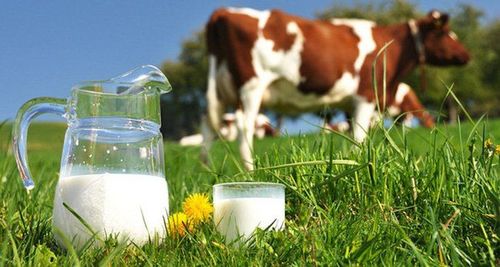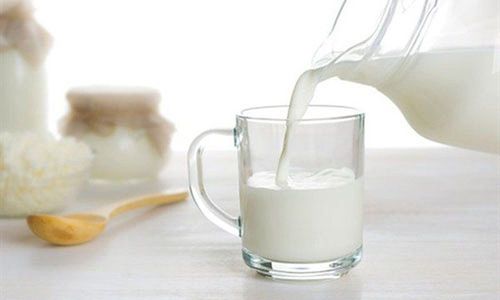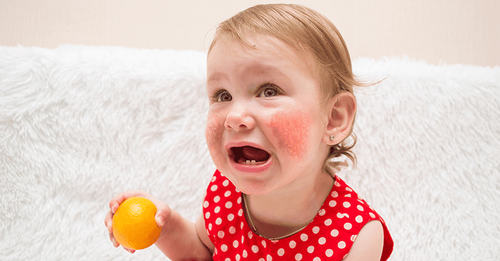This is an automatically translated article.
Cow's milk protein allergy is a very common condition in infants and young children, occurring when the child's immune system recognizes the protein in cow's milk as a harmful substance and reacts, signs that the baby is allergic. The milk reaction at this point will be very obvious.
Cow's milk protein allergy is the most common food allergy in infants and young children because cow's milk is the first foreign protein-containing food that this group has to absorb in large amounts. , especially those who have ever had an allergy to infant formula.
To accurately identify children with milk allergy is quite difficult because the clinical symptoms are very diverse. Symptoms of a milk allergy can appear soon after drinking milk called a rapid allergic reaction, or later, called a delayed allergic reaction. In general, children with milk allergy may have some symptoms in the first weeks of exposure to cow's milk protein such as:
Runny nose, wheezing, prolonged cough Frequent regurgitation and vomiting Atopic dermatitis Swelling of lips and eyelids (angioedema) Urticaria, rash Diarrhea/constipation, abdominal tightness. Possible loose stools, blood in stool Body iron deficiency anemia Persistent fatigue or cramps (>3 hours per day/irritation) at least 3 days per week for more than 3 weeks Exact cause of The status of cow's milk protein allergy in children is currently not clearly defined, but according to research, cow's milk protein allergy is inherited, so children with milk allergy will have a higher risk if their parents have it. history of allergic disease such as fever, itching or allergies to foods. Simply put, a child with a milk allergy is because when the child's body mistakenly recognizes that the protein components present in cow's milk are harmful, it will automatically produce IgE immune antibodies. neutralize these proteins.
In cow's milk, there are 2 main types of protein that cause cow's milk protein allergy: Casein in the curd part, and Whey in the liquid milk remaining after the curd has curdled. The next time the baby's body is exposed to these proteins in cow's milk, IgE antibodies have been produced that will recognize and signal the immune system to release histamine and other central chemicals. allergy time. It is these substances that will cause the baby's signs of cow's milk protein allergy.
Most cases of children growing up will completely recover from cow's milk protein allergy (the child's immune system has matured). However, it is necessary to do some tests for cow's milk protein allergy before it can be concluded that the baby is completely cured and can eat normal foods again.
The method of preventing cow's milk protein allergy, especially cow's milk protein allergy in infants, is currently breastfeeding. Since breast milk is the best way to protect babies from the possibility of food allergies, it contains proteins from the mother that can best be tolerated by the baby, and contains ingredients that have protective functions. for the child's immature digestive system before foreign protein sources.
Click “Register” to follow the latest health videos here.













